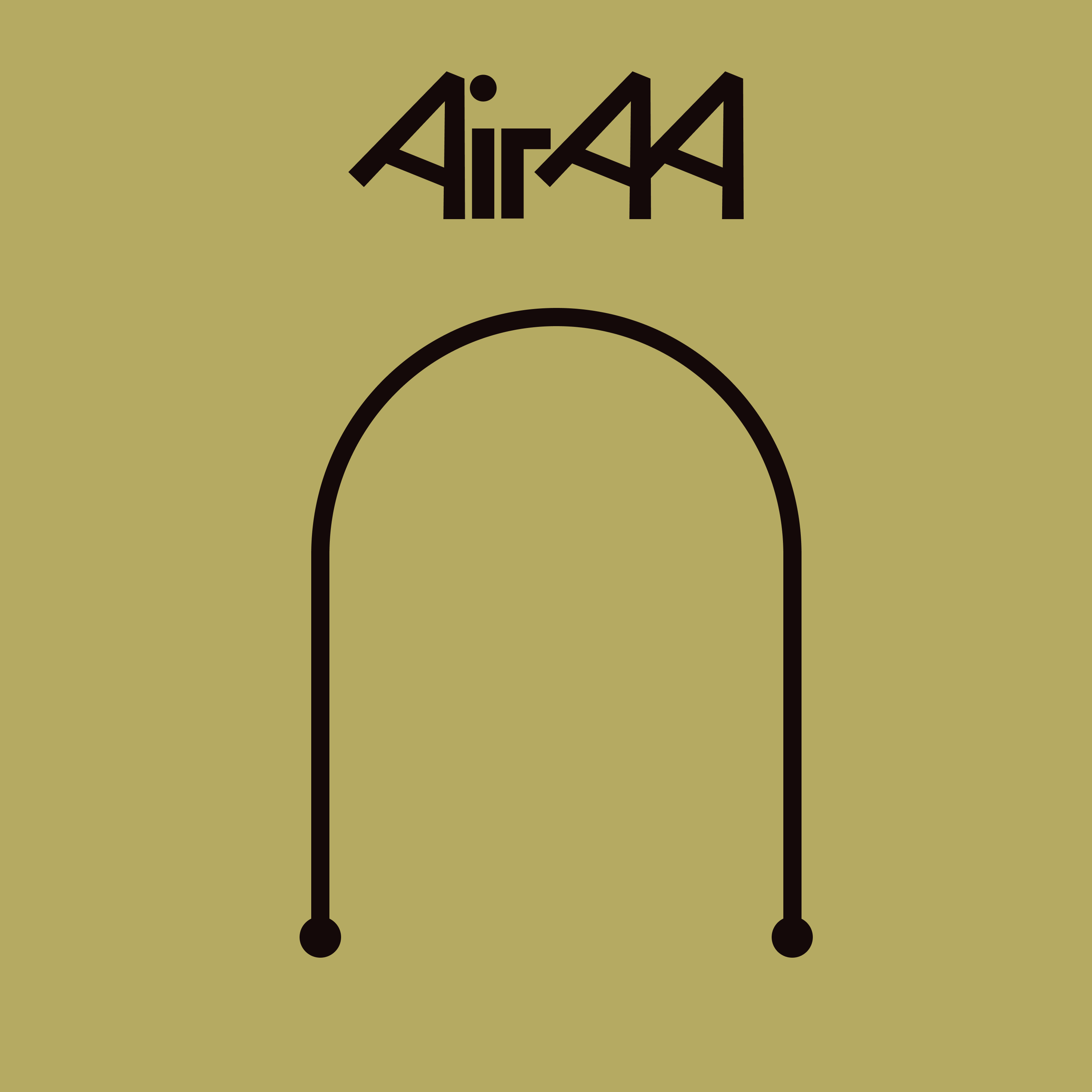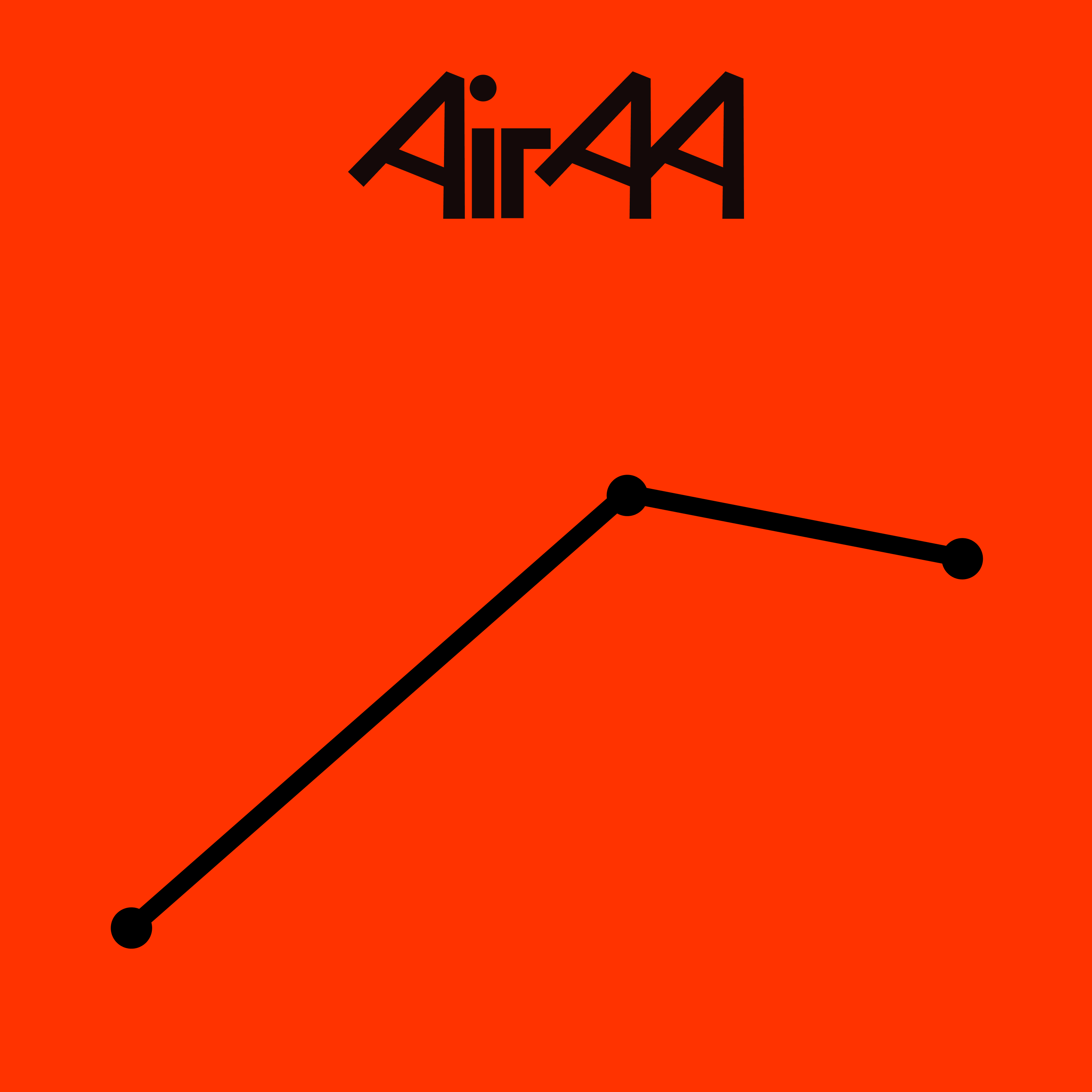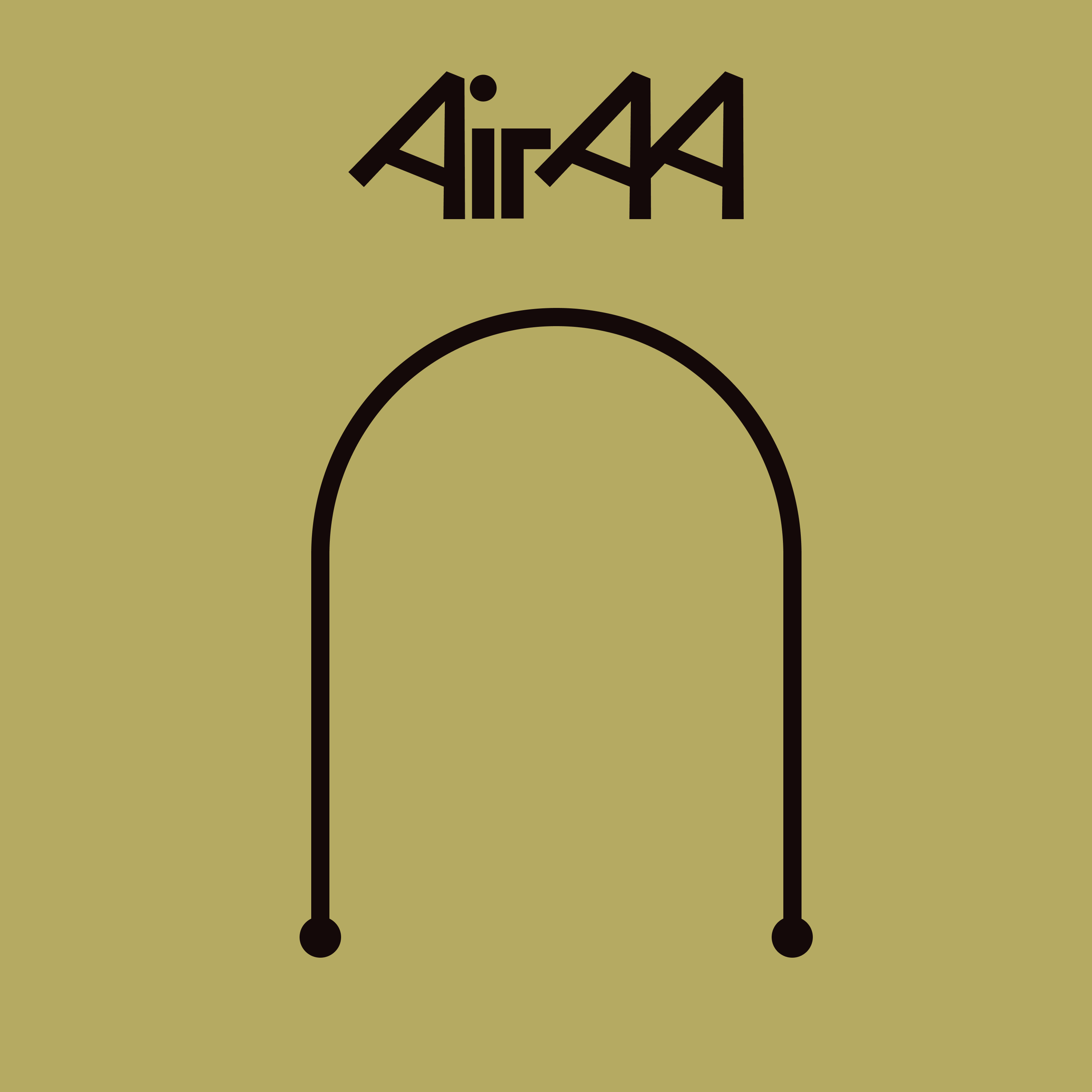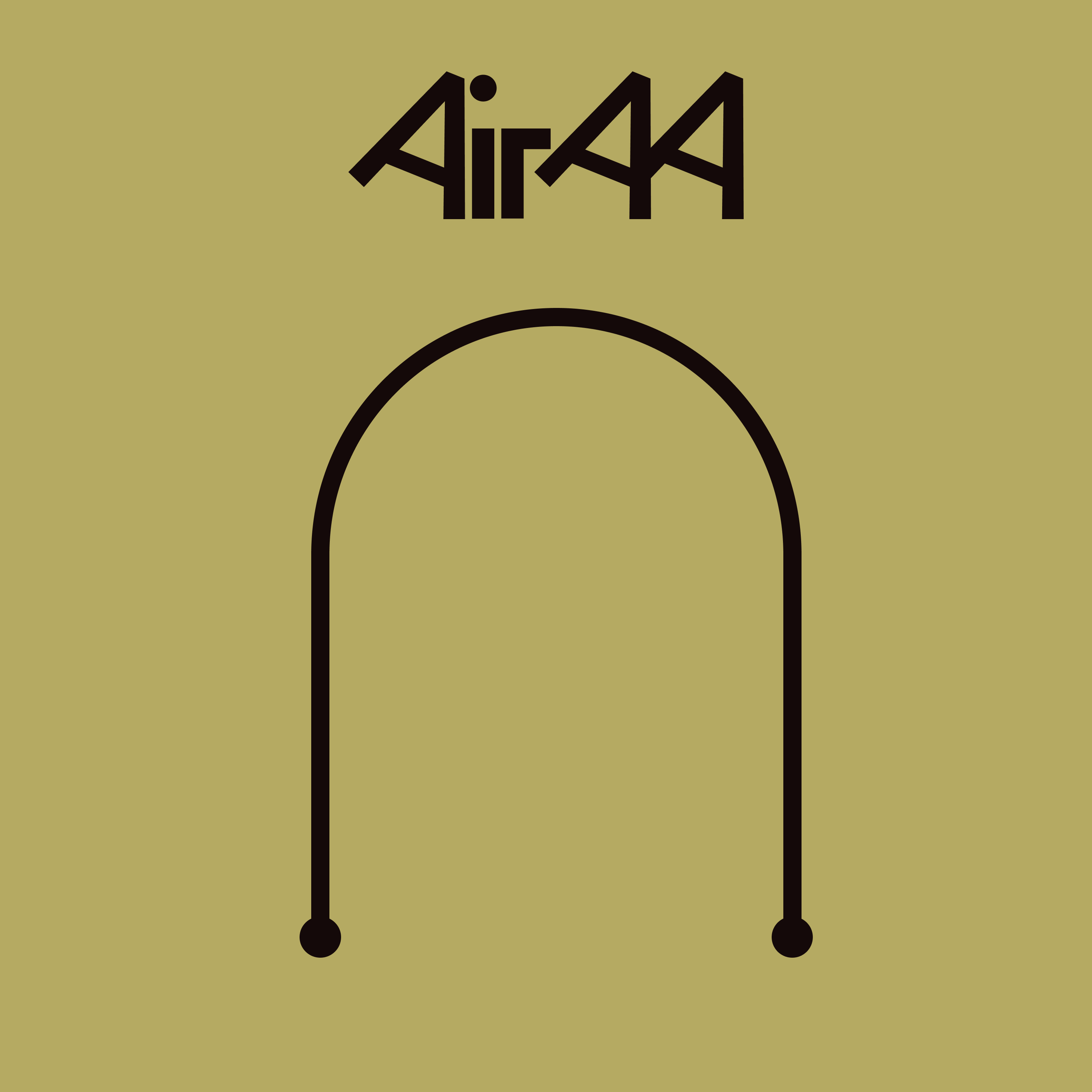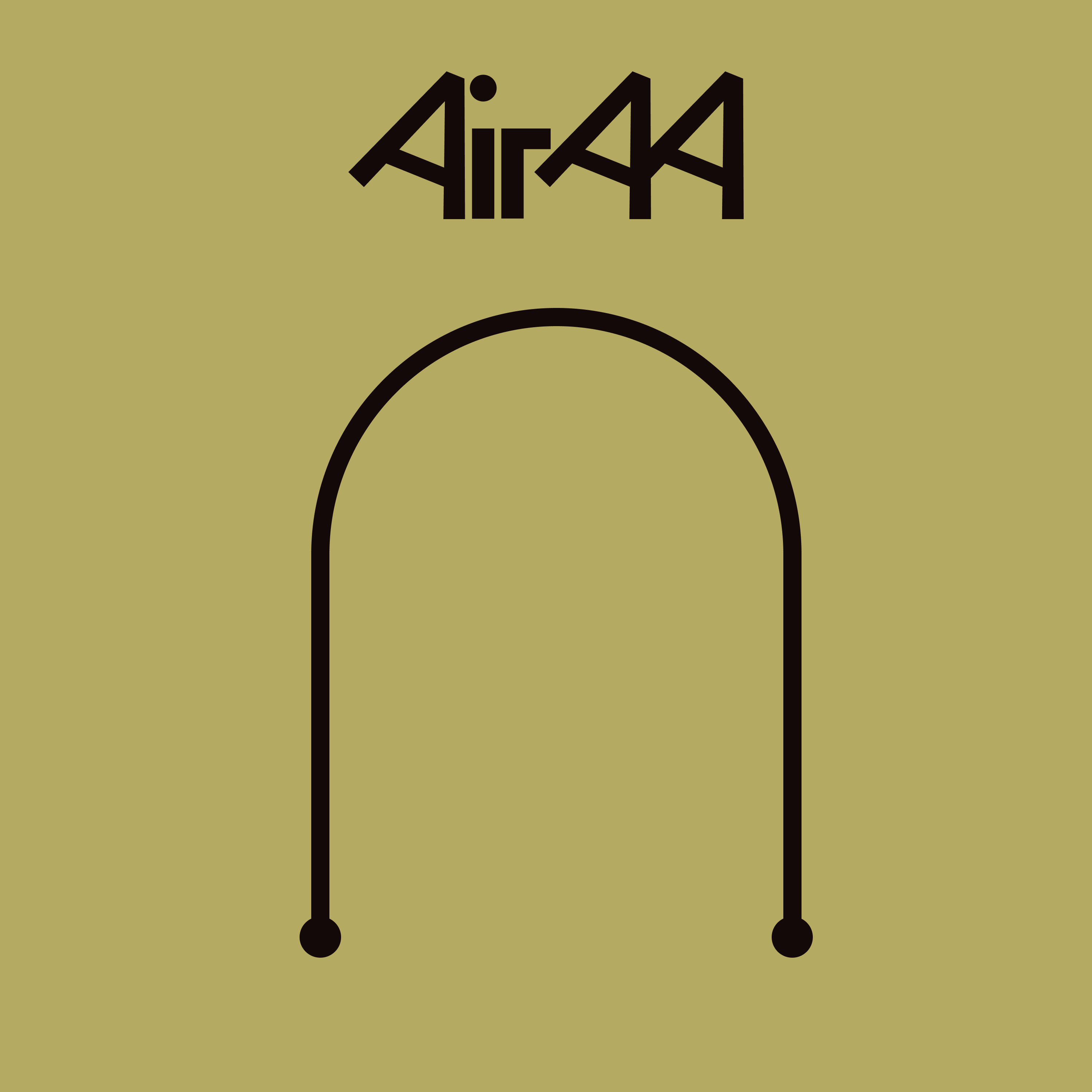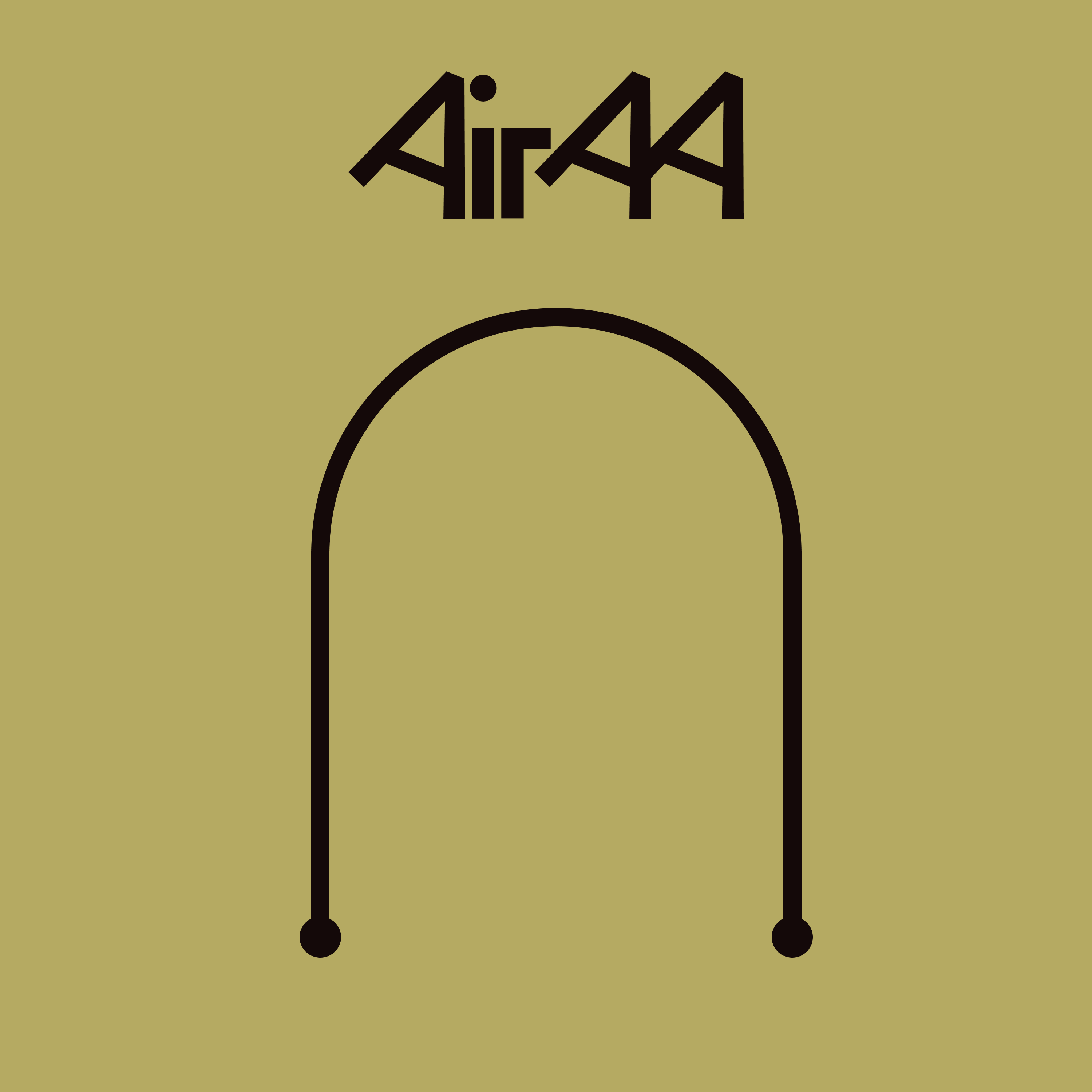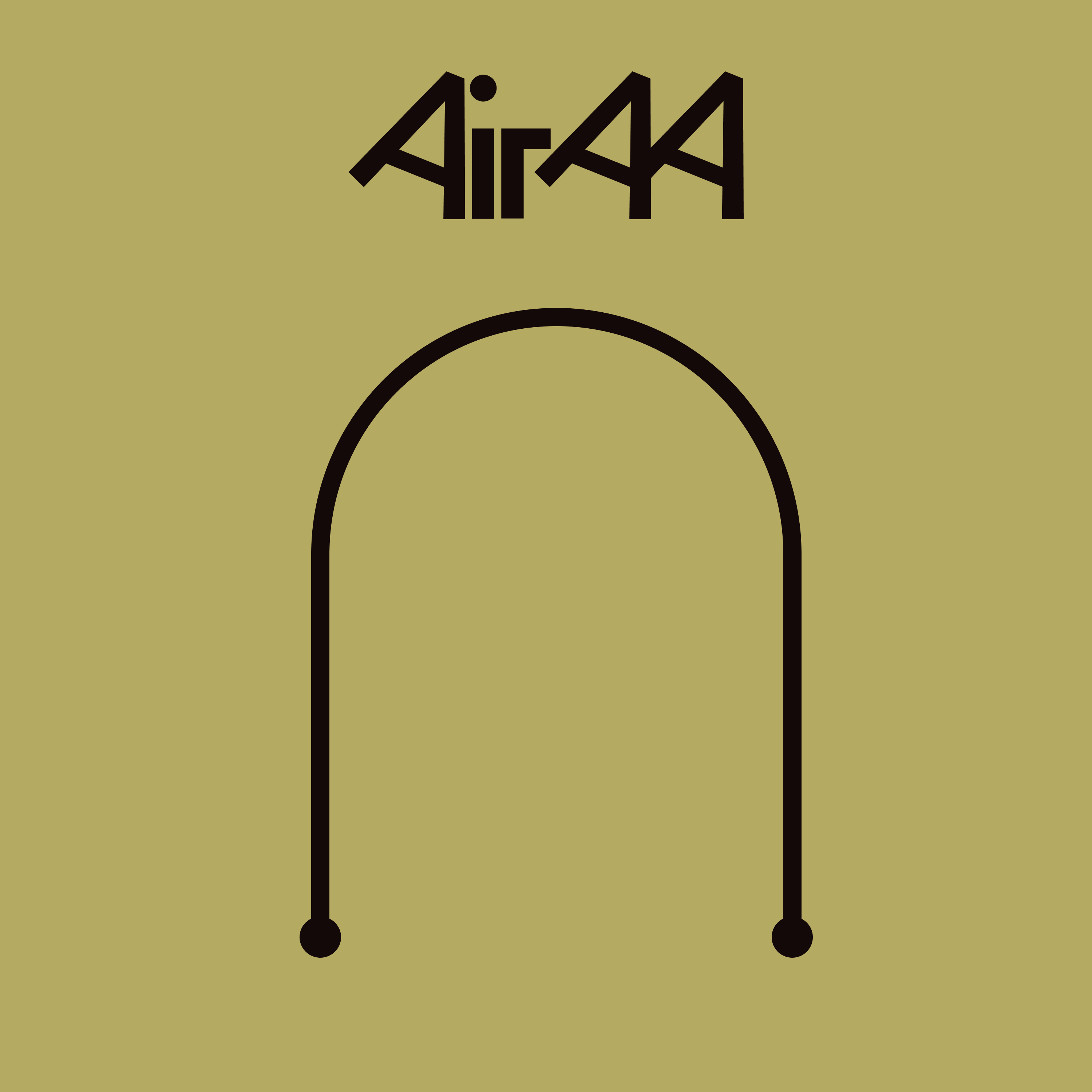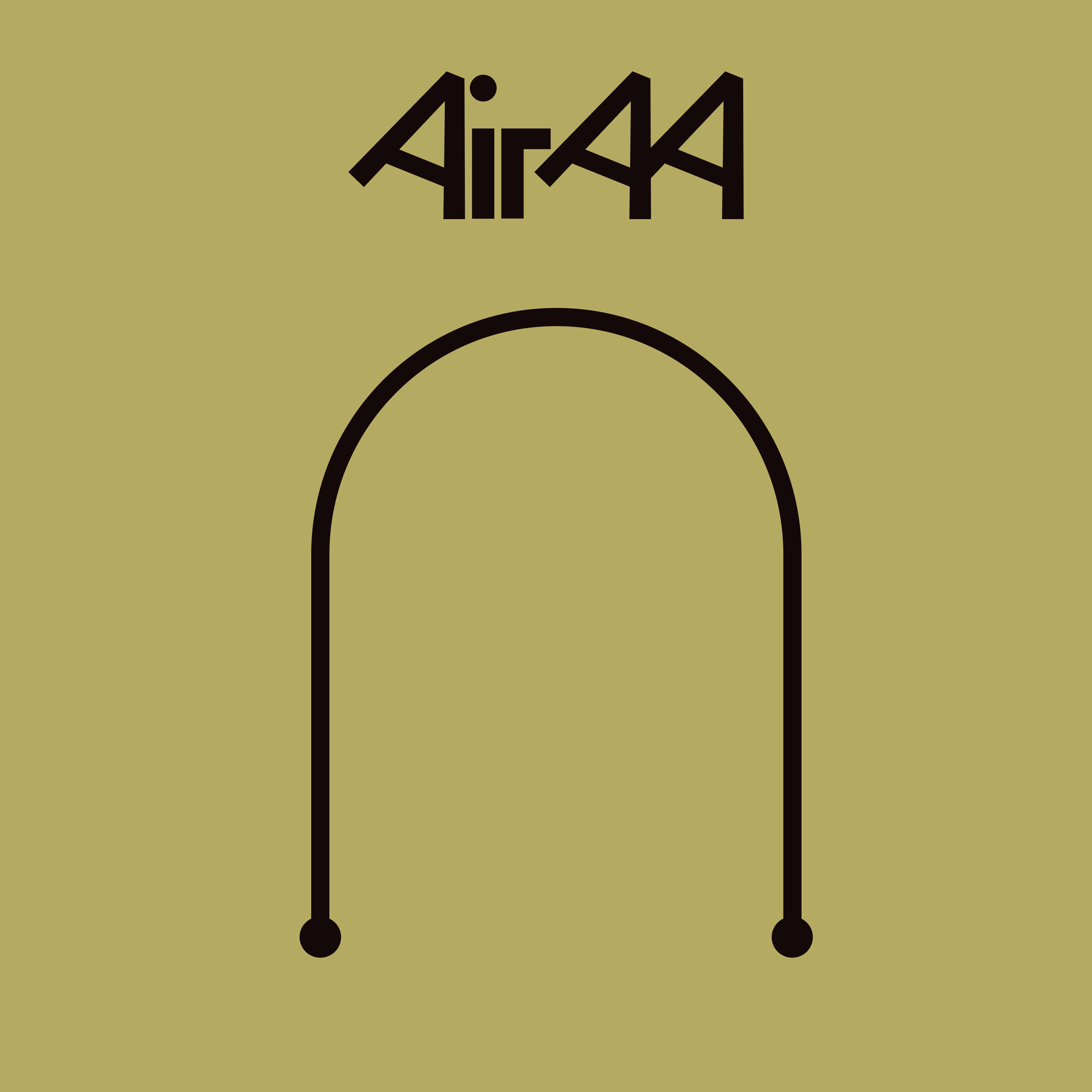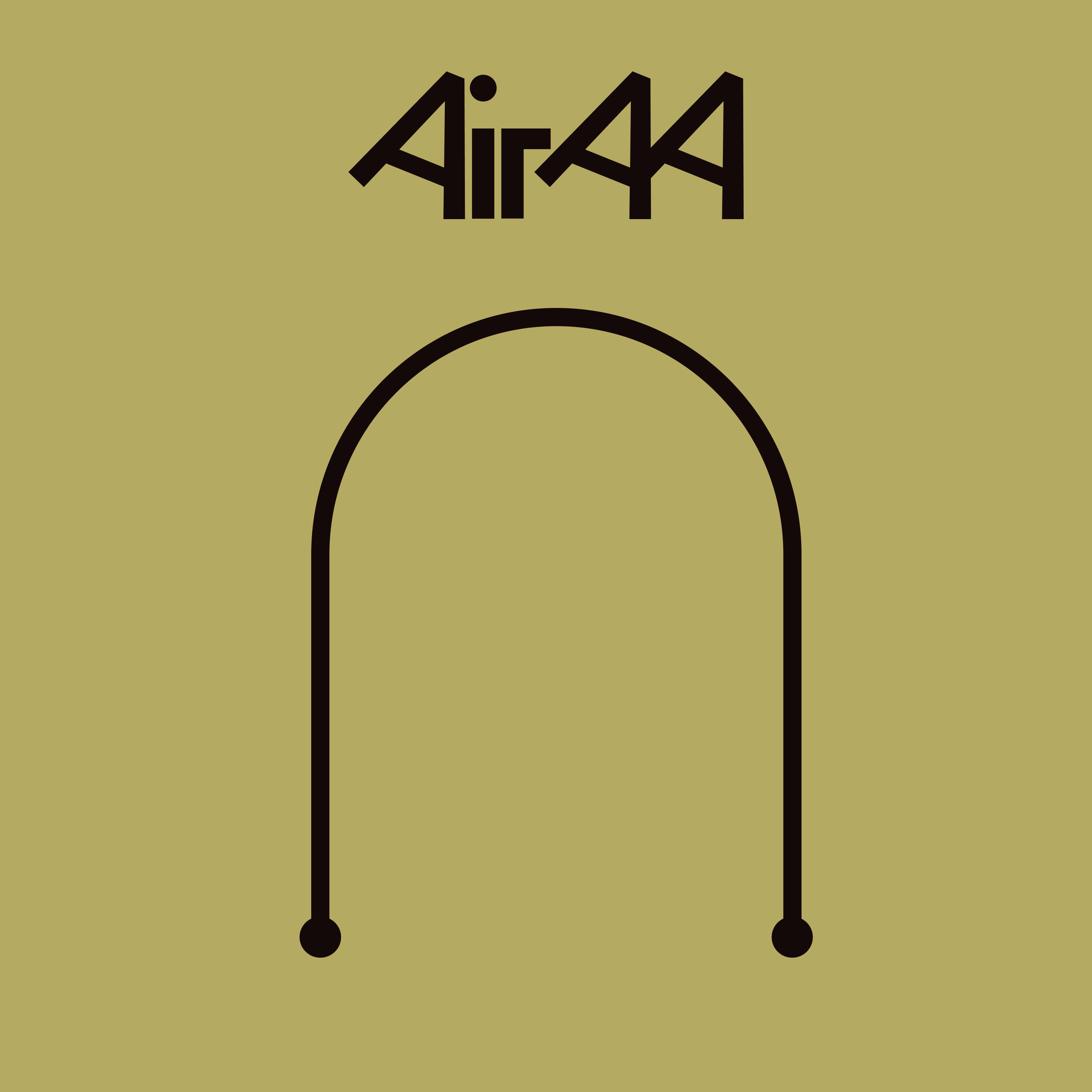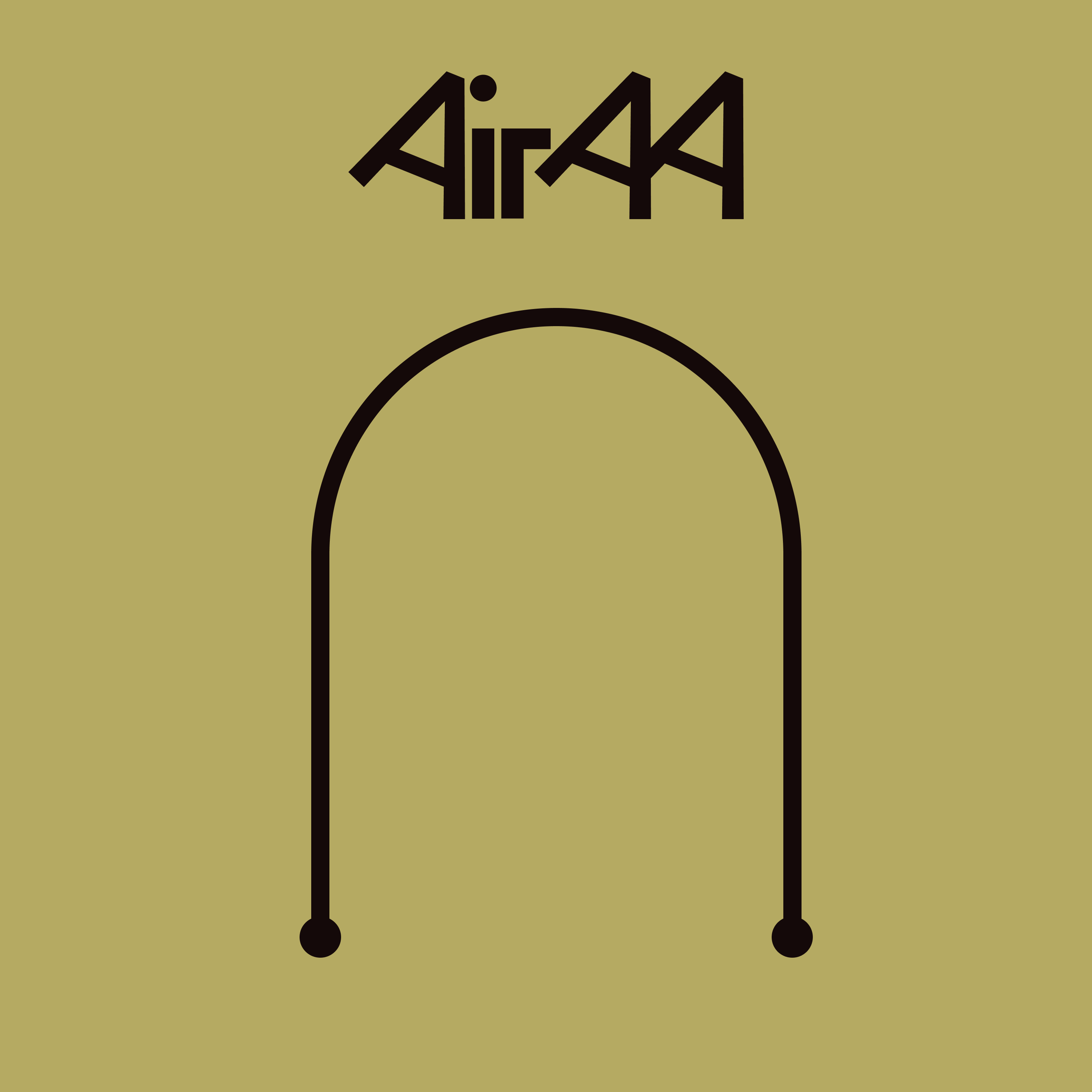Discover AirAA
AirAA

AirAA
Author: Architectural Association School of Architecture
Subscribed: 5Played: 73Subscribe
Share
© Copyright 2025 Architectural Association School of Architecture
Description
AirAA podcasts are recorded and produced at the Architectural Association in London, and bring together a variety of voices to discuss influences, inspirations, contemporary practice, architecture and the most pressing issues of our time.
46 Episodes
Reverse
Join us On the Steps of 36: a question-and-answer conversation that crosses thresholds into our guests’ histories, lives, influences and stories, shedding light on the person behind the work.In this episode, Harriet Jennings is in conversation with Naina Gupta, an architect, writer and educator with a PhD from the AA who recently launched her book Extraordinary Pools at the AA Bookshop.AirAA podcasts are conceived, recorded, mixed, edited and distributed from the Architectural Association School of Architecture, which is based in Bedford Square in London. Special thanks to Dainius Kacinskas and Thomas Parkes for their contribution to the production of our episodes.
Files on Air is a podcast series in which contributors from AA Files read their work. In this episode, Sony Devabhaktuni – an architect, writer and Assistant Professor at Swarthmore College – reads his essay ‘Still-Time at Amaravati’, found in AA Files 81.AA Files is the Architectural Association’s journal of record, which promotes original and engaging writing on architecture and its related fields. AirAA podcasts are recorded, mixed, edited and distributed from the Architectural Association School of Architecture, which is based in Bedford Square in London. Special thanks to Thomas Parkes for his contribution to the production of our episodes.The opinions expressed in AirAA podcasts are solely those of the participants and do not represent the opinions of the Architectural Association as a whole.
Join us On the Steps of 36: a question-and-answer conversation that crosses thresholds into our guests’ histories, lives, influences and stories, shedding light on the person behind the work.In this episode, Ryan Dillon is in conversation with Mike Tonkin, cofounder of Tonkin Liu Architects, who launched their book Asking, Looking, Playing, Making: A Nature-focused Design Process at the AA Bookshop earlier this year.AirAA podcasts are conceived, recorded, mixed, edited and distributed from the Architectural Association School of Architecture, which is based in Bedford Square in London. Special thanks to Dainius Kacinskas and Thomas Parkes for their contribution to the production of our episodes.
Join us On the Steps of 36: a question-and-answer conversation that crosses thresholds into our guests’ histories, lives, influences and stories, shedding light on the person behind the work.In this episode, Ryan Dillon is in conversation with Tom Emerson, cofounder of 6a Architects and Professor of Architecture at ETH Zürich who recently launched his book Dirty Old River at the AA.AirAA podcasts are conceived, recorded, mixed, edited and distributed from the Architectural Association School of Architecture, which is based in Bedford Square in London. Special thanks to Dainius Kacinskas and Thomas Parkes for their contribution to the production of our episodes.
Files on Air is a podcast series in which contributors from AA Files read their work. In this episode, George Jepson – a writer, researcher and editor who holds a PhD from the AA – reads his essay, ‘Demystifying Automation: Charles Babbage and the Invention of the ‘Thinking Machine’, found in AA Files 81.AA Files is the Architectural Association’s journal of record, which promotes original and engaging writing on architecture and its related fields. AirAA podcasts are recorded, mixed, edited and distributed from the Architectural Association School of Architecture, which is based in Bedford Square in London. Special thanks to Thomas Parkes for his contribution to the production of our episodes.The opinions expressed in AirAA podcasts are solely those of the participants and do not represent the opinions of the Architectural Association as a whole.
Files on Air is a podcast series in which contributors from AA Files read their work. In this episode, María Páez González – an architect, educator and Postdoctoral Researcher at TU Wien – reads her essay, ‘A Commanding Type? Lessons from Silicon Valley on the Architecture of Headquarters’, found in AA Files 81. The essay is an architectural reading of Silicon Valley's tech headquarters and their embedded power dynamics. AA Files is the Architectural Association’s journal of record, which promotes original and engaging writing on architecture and its related fields. AirAA podcasts are recorded, mixed, edited and distributed from the Architectural Association School of Architecture, which is based in Bedford Square in London. Special thanks to Thomas Parkes for his contribution to the production of our episodes.The opinions expressed in AirAA podcasts are solely those of the participants and do not represent the opinions of the Architectural Association as a whole.
Join us On the Steps of 36: a question-and-answer conversation that crosses thresholds into our guests’ histories, lives, influences and stories, shedding light on the person behind the work.In this episode, Leela Keshav is in conversation with Lex Fefegha, a creative coder and artist who makes interactive experiences using XR and AI, and who participated in the AA's event Disrupting the System.AirAA podcasts are conceived, recorded, mixed, edited and distributed from the Architectural Association School of Architecture, which is based in Bedford Square in London. Special thanks to Dainius Kacinskas and Thomas Parkes for their contribution to the production of our episodes.
Join us On the Steps of 36: a question-and-answer conversation that crosses thresholds into our guests’ histories, lives, influences and stories, shedding light on the person behind the work.In this episode of the AirAA podcast On the Steps of 36, Leela Keshav is in conversation with Alessia Gammarota, a photographer and campaigner with Fight 4 Aylesbury who participated in the AA's event 'The Resistant Representations of Artist-Activists'. AirAA podcasts are conceived, recorded, mixed, edited and distributed from the Architectural Association School of Architecture, which is based in Bedford Square in London. Special thanks to Dainius Kacinskas and Thomas Parkes for their contribution to the production of our episodes.
Join us On the Steps of 36: a question-and-answer conversation that crosses thresholds into our guests’ histories, lives, influences and stories, shedding light on the person behind the work.In this episode, Harriet Jennings is in conversation with Nelly Ben Hayoun-Stépanian, a pluridisciplinary artist, filmmaker and designer of experiences who participated in the AA's event 'Doppelgängers³: Intergenerational Trauma and Decolonial Futures in Space Exploration'.AirAA podcasts are conceived, recorded, mixed, edited and distributed from the Architectural Association School of Architecture, which is based in Bedford Square in London. Special thanks to Dainius Kacinskas and Thomas Parkes for their contribution to the production of our episodes.
Join us On the Steps of 36: a question-and-answer conversation that crosses thresholds into our guests’ histories, lives, influences and stories, shedding light on the person behind the work.In this episode, Harriet Jennings is in conversation with Saskia O'Hara, a legal caseworker and community legal organiser at the Public Interest Law Centre. Saskia participated in 'Consultation Counter Cultures', a two-part event series at the AA that critically evaluated the dysfunction of public consultation practices in the context of urban renewal projects.AirAA podcasts are conceived, recorded, mixed, edited and distributed from the Architectural Association School of Architecture, which is based in Bedford Square in London. Special thanks to Dainius Kacinskas and Thomas Parkes for their contribution to the production of our episodes.The opinions expressed in AirAA podcasts are solely those of the participants and do not represent the opinions of the Architectural Association as a whole.
Join us On the Steps of 36: a question-and-answer conversation that crosses thresholds into our guests’ histories, lives, influences and stories, shedding light on the person behind the work.In this episode, Leela Keshav is in conversation with Olivia Oldham, a PhD researcher in agroecology who co-organised the symposium Locating the Agrarian Struggles for Land, which took place at the AA in November.AirAA podcasts are conceived, recorded, mixed, edited and distributed from the Architectural Association School of Architecture, which is based in Bedford Square in London. Special thanks to George Patterson and Thomas Parkes for their contribution to the production of our episodes.The opinions expressed in AirAA podcasts are solely those of the participants and do not represent the opinions of the Architectural Association as a whole.
Join us On the Steps of 36: a question-and-answer conversation that crosses thresholds into our guests’ histories, lives, influences and stories, shedding light on the person behind the work.In this episode, Harriet Jennings is in conversation with Caterina Frisone, author of The Therapeutic Power of the Maggie's Centre, which was launched at the AA Bookshop last term.AirAA podcasts are conceived, recorded, mixed, edited and distributed from the Architectural Association School of Architecture, which is based in Bedford Square in London. Special thanks to George Patterson and Thomas Parkes for their contribution to the production of our episodes.The opinions expressed in AirAA podcasts are solely those of the participants and do not represent the opinions of the Architectural Association as a whole.
Join us On the Steps of 36: a question-and-answer conversation that crosses thresholds into our guests’ histories, lives, influences and stories, shedding light on the person behind the work.In this episode, Harriet Jennings is in conversation with Andrew Holmes, an artist and former AA tutor whose large-scale photorealistic drawings were displayed at the AA in autumn 2024 in the GAS TANK CITY exhibition.AirAA podcasts are conceived, recorded, mixed, edited and distributed from the Architectural Association School of Architecture, which is based in Bedford Square in London. Special thanks to George Patterson and Thomas Parkes for their contribution to the production of our episodes.The opinions expressed in AirAA podcasts are solely those of the participants and do not represent the opinions of the Architectural Association as a whole.
Join us On the Steps of 36: a question-and-answer conversation that crosses thresholds into our guests’ histories, lives, influences and stories, shedding light on the person behind the work.In this episode, Manijeh Verghese is joined by Jordan Whitewood-Neal, an architectural researcher, designer and artist whose work addresses disability, domesticity, pedagogy and cultural infrastructure. Jordan took part in ‘New Standards’, an AA series that aimed to identify and confront some of the barriers to architecture, its education and practice.AirAA podcasts are conceived, recorded, mixed, edited and distributed from the Architectural Association School of Architecture, which is based in Bedford Square in London. Special thanks to Thomas Parkes for his contribution to the production of our episodes.The opinions expressed in AirAA podcasts are solely those of the participants and do not represent the opinions of the Architectural Association as a whole.
Files on Air is a podcast series in which contributors from AA Files read their work. In this episode, Rebecca Crabtree – an architect, lecturer and PhD candidate at the RCA – reads her essay, ‘Closing Time’, found in AA Files 80. The essay reveals the multifaceted significance of coaching inns as both domestic and commercial spaces in 18th- and 19th-century England, a time of rapid industrialisation. AA Files is the Architectural Association’s journal of record, which promotes original and engaging writing on architecture and its related fields. AirAA podcasts are recorded, mixed, edited and distributed from the Architectural Association School of Architecture, which is based in Bedford Square in London. Special thanks to Thomas Parkes for his contribution to the production of our episodes. The opinions expressed in AirAA podcasts are solely those of the participants and do not represent the opinions of the Architectural Association as a whole.
Join us On the Steps of 36: a question-and-answer conversation that crosses thresholds into our guests’ histories, lives, influences and stories, shedding light on the person behind the work.In this episode, Ryan Dillon is joined by Brendan Cormier, Chief Curator at the V&A East and the editor of Pandemic Objects, published by AA Publications in collaboration with the V&A in February 2024. The book examines everyday objects that became charged with new urgency in the wake of the Covid-19 pandemic and is available for purchase at the AA Bookshop.AirAA podcasts are conceived, recorded, mixed, edited and distributed from the Architectural Association School of Architecture, which is based in Bedford Square in London. Special thanks to Thomas Parkes for his contribution to the production of our episodes.The opinions expressed in AirAA podcasts are solely those of the participants and do not represent the opinions of the Architectural Association as a whole.
Join us On the Steps of 36: a question-and-answer conversation that crosses thresholds into our guests’ histories, lives, influences and stories, shedding light on the person behind the work. In this episode, Ryan Dillon is joined by Ella Adu, an architect and writer whose research considers changing modes of grassroots cultural production in Britain. Adu was also the assistant curator of the AA exhibition As Hardly Found in the Art of Tropical Architecture in 2023. AirAA podcasts are conceived, recorded, mixed, edited and distributed from the Architectural Association School of Architecture, which is based in Bedford Square in London. Special thanks to Thomas Parkes and Dainius Kacinskas for their contribution to the production of our episodes. To view the show notes and find more episodes, visit air.aaschool.ac.uk.The opinions expressed in AirAA podcasts are solely those of the participants and do not represent the opinions of the Architectural Association as a whole.
Join us On the Steps of 36: a question-and-answer conversation that crosses thresholds into our guests’ histories, lives, influences and stories, shedding light on the person behind the work. In this episode, Manijeh Verghese is joined by Ellie Sampson, a model maker, paper cut artist and lecturer. Sampson also participated in the AA event Warburg Models: Buildings as Bilderfahrzeuge earlier this year – you can watch a recording of the event here.AirAA podcasts are conceived, recorded, mixed, edited and distributed from the Architectural Association School of Architecture, which is based in Bedford Square in London. Special thanks to Thomas Parkes for his contribution to the production of our episodes. To view the show notes and find more episodes, visit air.aaschool.ac.uk.The opinions expressed in AirAA podcasts are solely those of the participants and do not represent the opinions of the Architectural Association as a whole.
Join us On the Steps of 36: a question-and-answer conversation that crosses thresholds into our guests’ histories, lives, influences and stories, shedding light on the person behind the work. In this episode, Ryan Dillon is joined by Martha Summers, an artist, architect and designer based in London. Earlier this year, Summers participated in the AA event Collective Efforts: Navigating Friction in Collaboration as part of the Self-Organised: Models for Learning series – you can watch a recording of the event here.AirAA podcasts are conceived, recorded, mixed, edited and distributed from the Architectural Association School of Architecture, which is based in Bedford Square in London. Special thanks to Thomas Parkes for his contribution to the production of our episodes. To view the show notes and find more episodes, visit air.aaschool.ac.uk.The opinions expressed in AirAA podcasts are solely those of the participants and do not represent the opinions of the Architectural Association as a whole.
Join us On the Steps of 36: a question-and-answer conversation that crosses thresholds into our guests’ histories, lives, influences and stories, shedding light on the person behind the work. In this episode, Ryan Dillon is joined by Arinjoy Sen, an artist and architect whose work focuses on the politics and aesthetics of architecture and space. Sen participated in the AA event Collaborative Models as part of the Self-Organised: Models for Learning series in 2024 – you can watch a recording of the event here.AirAA podcasts are conceived, recorded, mixed, edited and distributed from the Architectural Association School of Architecture, which is based in Bedford Square in London. Special thanks to Thomas Parkes for his contribution to the production of our episodes. To view the show notes and find more episodes, visit air.aaschool.ac.uk.The opinions expressed in AirAA podcasts are solely those of the participants and do not represent the opinions of the Architectural Association as a whole.


